3 Tips to Stop Information Overload
It's one of the most common complaints among working adults: "Stop the emails!" At least that's what I hear in the work I do coaching executives (coach4ldrs.com) If work isn't stressful enough, we're drowning in information that doesn't stop coming. Now we are experiencing the technology gurus using text, oh my goodness.
Here are three good tips for stopping the avalanche of information that clogs up our workspace so we can concentrate on what really matters, the things that will bring in the best results.
1. Leverage the “Pareto Principle ” (AKA the 80:20 rule)
Author Timothy Ferriss (The 4-Hour Workweek) writes about the importance of the 80:20 rule, or the Pareto Principle. Essentially, this principle says that 80% of your results come from 20% of your actions. Conversely, 80% of your problems result from 20% of your inputs.
Let's apply this idea to the "info overload" problem. It’s almost certain that 80% of the information that comes into your life everyday is relatively useless. Get rid of that excess 80%. Focus on the 20% of information that genuinely adds to your life.
Do routine “80:20” audits of both your information and daily time usage to improve your productivity and clamp down on overload.
2. Use Parkinson’s Law
Parkinson’s Law essentially states that work will expand or contract to take up the amount of time allotted for it. In The 4-Hour Workweek, Ferriss talks about Parkinson’s Law as a companion principle to the 80:20 principle. The idea is that you should give yourself hard to meet (but not impossible) deadlines throughout the day.
For instance, say you enjoy surfing the internet. But you don’t want to spend 3 hours a day lost mindlessly on the web. Set a timer – say 30 minutes. Then allow yourself to swim in the info-sea until the timer buzzes.
3. Explore "Getting Things Done" – a productivity system
Productivity guru David Allen created the Getting Things Done (GTD) system to help info-overloaded people clear their slates and their minds. Essentially, Allen’s philosophy is to write down what’s on your mind – to collect your mind’s “open loops” in an objective format, such as a lengthy to-do list. In this way, your brain doesn’t have to “remember everything.” GTD is not a simple system to learn or use, but it contains many powerful ideas.
Whatever system you use, it's only as good as the results it brings you. If you continue to struggle with information overload, you may benefit from professional coaching services (coach4ldrs.com)
Many of my clients have had turn-around breakthroughs. You may not be able to see what a good coach can see.
Love to connect and hear how you handle the chaos of information overload.
Here is my cell 714-267-2818

